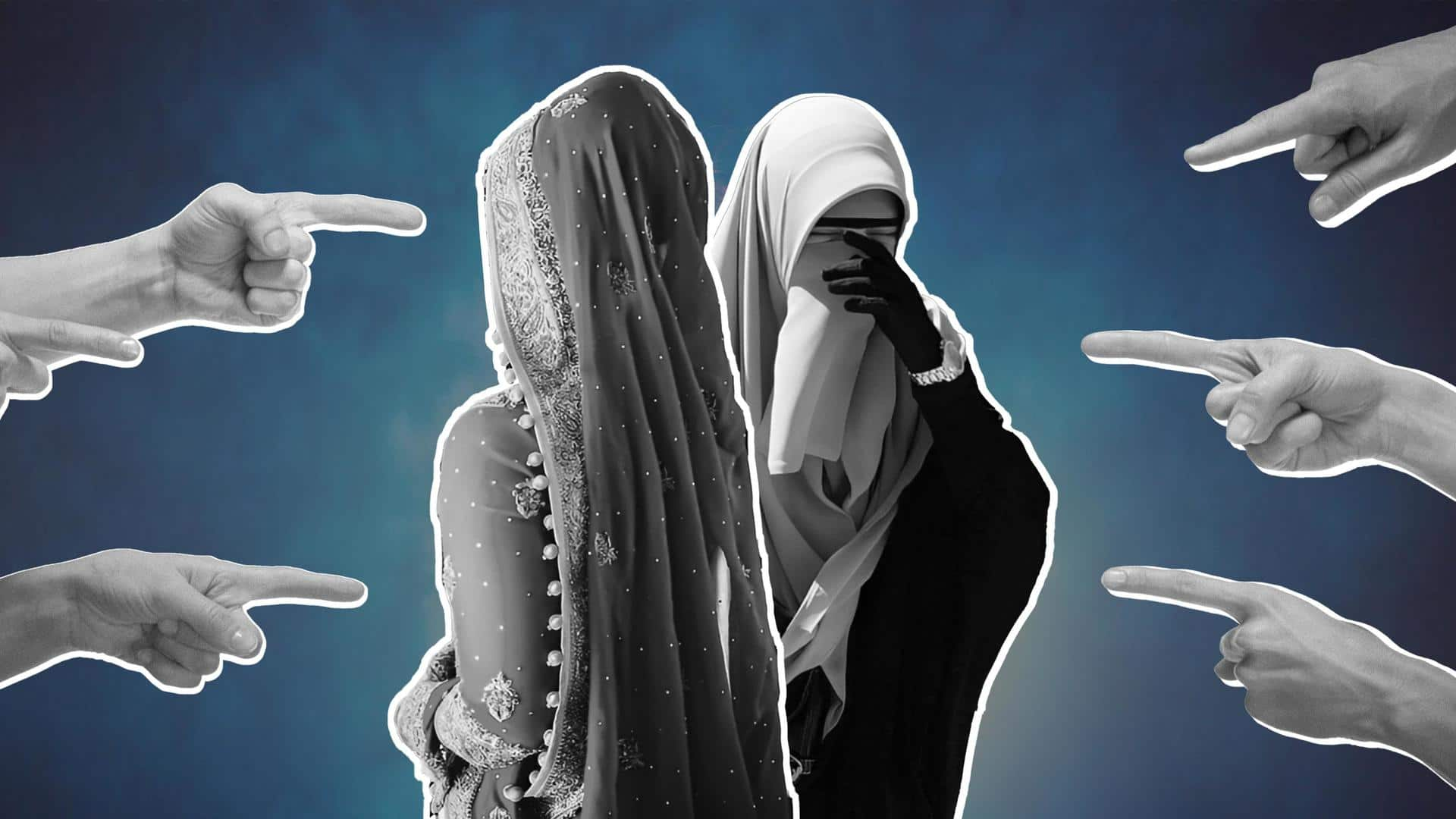
Forget slut-shaming, modesty-shaming is the new evil
What's the story
Society's attitudes and beliefs shift over time, and sometimes they shift to such an extent that things swing from one extreme to the other extreme. You must probably be aware of slut shaming, the action of judging women for engaging in "promiscuous" or sexually provocative behavior. But there is a new label in town to police women's bodies - modesty shaming.
Modesty shaming
What is modesty shaming?
Modesty shaming is when seemingly modern, educated people equate modernity with short clothes and shame women who choose to dress modestly or conservatively. And that is not it. The shaming goes up a notch when these people make everyone else subscribe to their twisted perceptions about modernity and tend to cancel out those who do not fall in line with their skewed agenda.
Behenji
Modesty shaming goes beyond just 'behenji'
Modesty shaming is not just limited to behenji - a term often used to refer to women who are perceived as traditional, conservative, or old-fashioned in their dress sense. You may be dressed in tailored jackets and well-fitted jeans and conform to the societal norms of beauty, but if you happen to hold traditional beliefs, you are labeled as old-fashioned and immediately canceled out.
Social media
Social media works as an amplifier
Social media is a breeding ground for modesty shaming and can amplify its effects. The algorithms and features like "likes" and "shares" can create a culture of competition and comparison that can lead to pressure to conform to certain beauty standards or societal expectations. This also perpetuates modesty shaming, as people seek to elevate their own social status by tearing down others.
Saree
Saree shaming is quite common in India
This is not to be misunderstood as shaming women for not knowing how to drape a saree. Saree-shaming means that you are not considered valuable enough if you are not updated with current trends in fashion design and wear a saree over a chic floor-length anarkali or asymmetrical kurta. Some people just thrive on microaggression and take pleasure in tearing down their own tribe.
Hijab shaming
Hijab shaming counts too
There have been several instances where political parties in India and worldwide have started a furor over banning the hijab. Women in hijab are viewed as backward, uneducated, oppressed, or even as potential terrorists. This is often justified on security grounds, as an anti-terrorism measure. Some nations claim it would tackle religious oppression and terrorism, while others argue it would discriminate against women's rights.